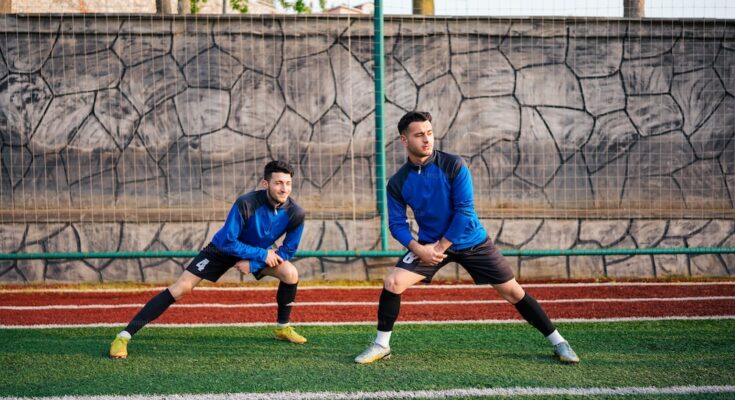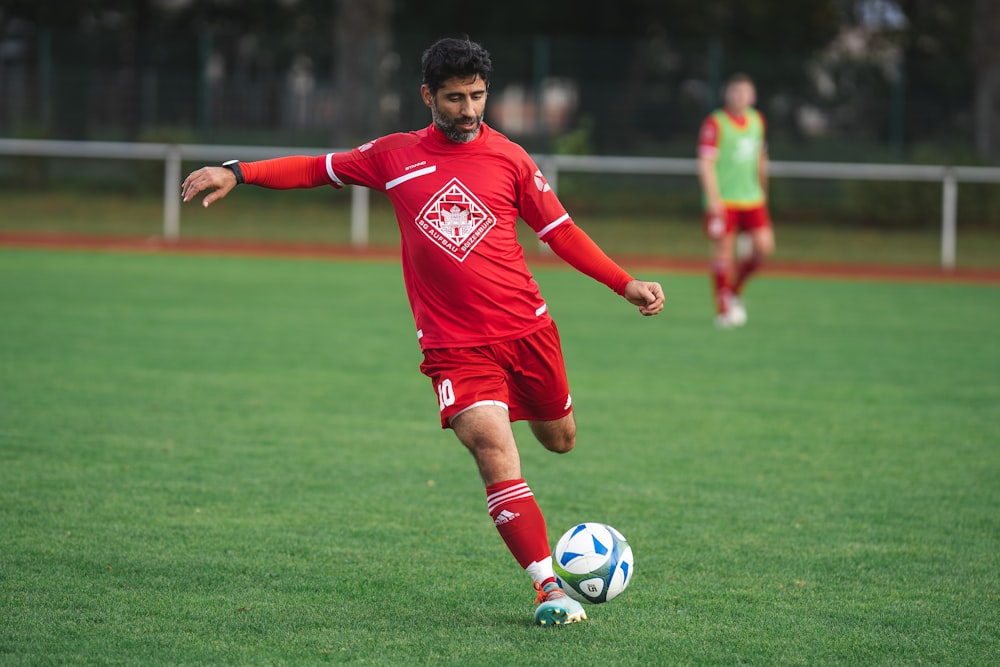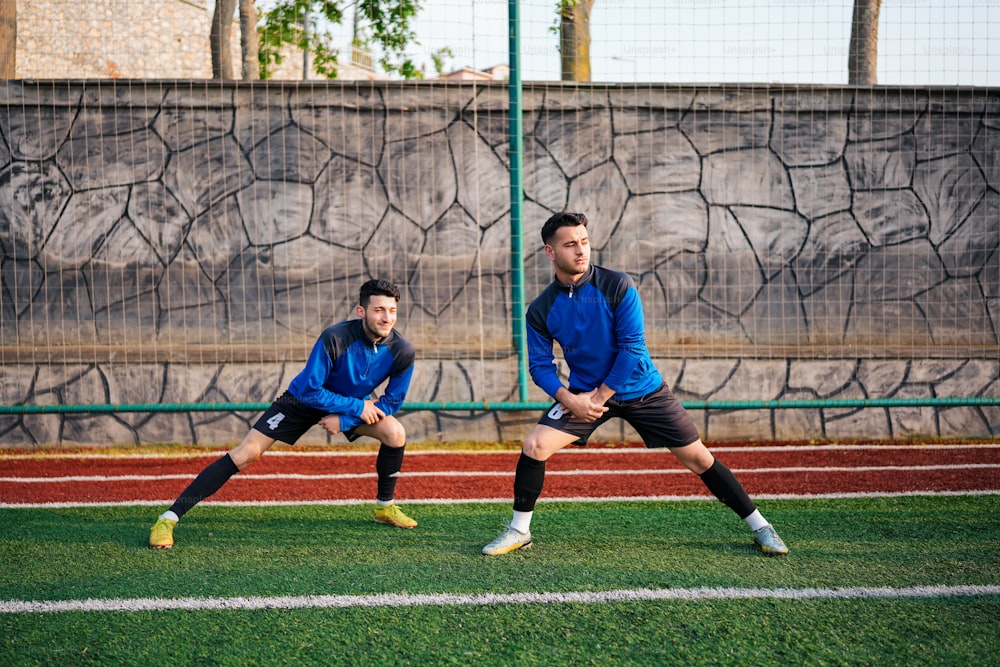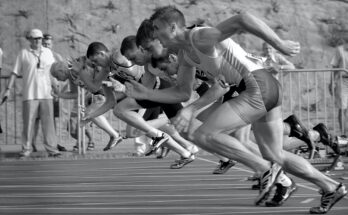Ultimate Guide to Building Mental Toughness for Athletes
The ability to resist, control, and get through doubts, concern, concerns. Additionally, having the capacity to withstand physical discomfort or exhaustion as well as continuing to be adaptable and open-minded. All you need is an ultimate guide.
The ability to control our thoughts under pressure is a result of perseverance, self-control, and constant improvement. The outside forces attempting to add pressure or doubt will be disregarded if we concentrate on what we can control.
The key to having a strong mind is being able to stay optimistic, be present, and continue with the process. Our concentration, routine, daily activities, and self-talk all play a part in how successful we are. But our attitude is ultimately what shifts that focus.
Meditation: ultimate guide
Image via Unsplash.com
Our body and mind are amazingly connected during meditation. As a result of letting our body to honestly and unbiasedly observe all of its sensations, it enables us to achieve a deeper degree of consciousness. We must be receptive to whatever comes through us and accept those feelings or thoughts as they arise because they have a purpose.
Everything happens for a reason, and we discover the finest solutions to our life from within. Whatever is coming to mind at the moment is a hint that we may need to let go of certain things or focus more in that area.
The best method to reclaim the present moment when life seems hurried or “heavy” is through meditation. It fosters true consciousness and restores balance with our higher selves. Being conscious allows us to live more shrewdly, healthily, and in the present.
This is crucial in athletics because we must constantly maintain a present-focused attitude and the capacity to move past either failure or victory. Athletes who are capable of doing this are elite and frequently stand out among their colleagues.
Mindfulness: ultimate guide
Yoga, like meditation, helps us become more aware of our bodies and minds while enhancing our flexibility, mobility, and balance. In any activity, yoga is a great way to develop neuro-muscular connections that support body awareness. Yoga, in my opinion, is meditation in motion since it requires the presence of the mind to be effective. Enhancing links between what is “real vs feel” through regular yoga practice is important for athletics. The more accurately we can perform by feel, the more success we can actually have.
Breathing techniques
Image via Unsplash.com
Elite athletes demonstrate how conscious breathing control can make or break a person’s mental state during periods of intense attention or endurance. Wim How, who can endure extremely cold temperatures for extended periods of time by controlling his breathing and mentality, serves as an example of how we may push ourselves over numerous problems just by managing our breathing. The two are closely related, so when we master one, the other usually does too.
Sports are all about quick decisions, so any way we can slow down the action is advantageous. The ability of our body to respond quickly with decisions made by muscle memory will be compromised if we do not concentrate on being entirely relaxed in our minds. This results from a lack of mental fortitude or control over our focus. Breath control is a crucial characteristic that distinguishes amateurs from professionals and may entirely make or break an athlete under duress.
Envision success: ultimate guide
It’s more difficult to believe what we don’t see… Through the use of mental imagery, we can imagine the outcomes we want actually occurring. Because we are more certain that it is now attainable, this helps us align confidence and trust in our skills. Oftentimes in sports, we are more in our sympathetic nervous system, which is controlled by adrenaline and “fight or flight” impulses, which is quite strong at overriding our conscious actions.
Muscle memory will therefore be crucial for performing when everything is truly moving at game speed. It gives us a preview of what might occur when we picture ourselves doing the work or making the proper play in advance. As a result, every play is better prepared. The only way we can perform to the best of our abilities is to always think about the next play because we have a concept or strategy for what might happen.
Mind games
Image via Unsplash.com
Games are excellent for changing things up and trying something new. Whatever the game, it will be useful for enhancing mental toughness as long as it fosters the development of problem-solving abilities, rational decision-making, and increased decision-making speed. Clearly, for continuous improvement, the mind is equally as crucial as the body. But because they improve abilities that are important to athletic performance, the advantages are great. Chess, Sudoku, crosswords, card games, and brightness are a few examples.
Each of them calls for perseverance, recall, flexibility of thought, fast decision-making, and sharp problem-solving. Athletes shouldn’t overlook certain abilities as they are crucial for improving athletic performance. The best athletes or most gifted people are not usually the best performers. However, their mental fortitude and aptitude enable them to reach their full potential, which occasionally outperforms superior talent.
Cold showers: ultimate guide
Cold showers are frequently utilized in a variety of sports to aid with physical rehabilitation. Our mental toughness will also greatly benefit from the benefits. It teaches us how to be at ease under challenging circumstances. We are compelled to regulate our breathing, slow down our heart rate, and unwind our minds.
However, it’s a method that has been shown to help in bringing us back to the present and encouraging resilience for difficult situations, which are unavoidable in elite sports. Imagine a scenario in which the game is tight, the score is tied, and there is little time or margin for error. Even if these circumstances are uncomfortable, we must learn to maintain our composure while working.







